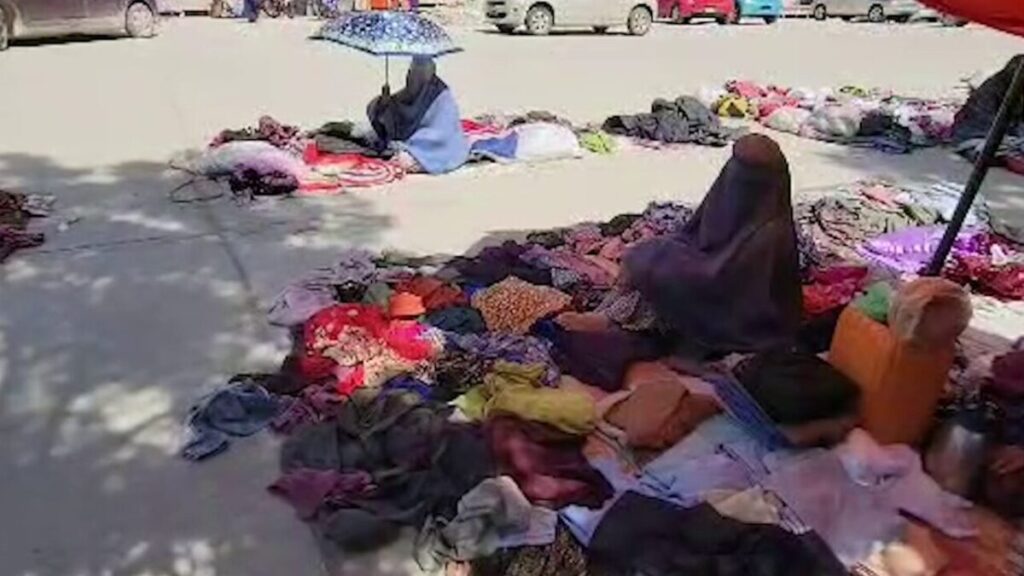SHEBERGHAN, Afghanistan — Several female street vendors in Sheberghan have been forced out of the market after the Taliban’s municipality office doubled their rent from 500 to 1,000 Afghanis ($7.2 to $14.4) per month.
The women, who relied on their stalls to make a living, said they could not afford the increased rent, citing insufficient income to cover basic needs. Many of these vendors are the sole breadwinners for their families, struggling to feed their children through their street vending income.
Marwaiza, a vendor supporting her family of six, said the Taliban banned her and other female vendors from the Sheberghan city market several days ago. “The market was very good. We had a place to sit, and even if our income was less, at least we had shelter,” she said. “Now, we are sitting on the street; people are passing by. Yesterday, a woman almost got hit by a car. It is very difficult for us to sit here; it is sunny and hot, and in winter there is snow. If we don’t come to work, our children will die of hunger. We are forced to come; at least allocate a place for us. The market we used to use is now occupied by men.”

The female vendors had stalls in the Sheberghan city markets to sell second-hand clothes, renting them for 500 Afghanis per month. However, the Taliban’s municipality increased the rent to 1,000 Afghanis per month, making it unaffordable for them. Consequently, they were expelled from the city’s markets.
“When this market first opened, it didn’t grow much. We paid 500 Afghanis per month,” said Gulalai, another vendor. “Thanks to this government market, our days were good. We earned some bread and lived under the market’s shelter. It was like our home then.”
According to these women, male street vendors are now occupying the stalls to sell second-hand clothes. The female vendors stated that they can earn only 2,500 to 3,000 Afghanis per month from selling second-hand clothes, barely enough to cover their expenses.
The situation has left these women in a precarious position, struggling to find a safe and affordable place to conduct their business. Their plea for the authorities to allocate a designated area for them remains unaddressed, highlighting the ongoing challenges faced by women under the Taliban’s rule.




